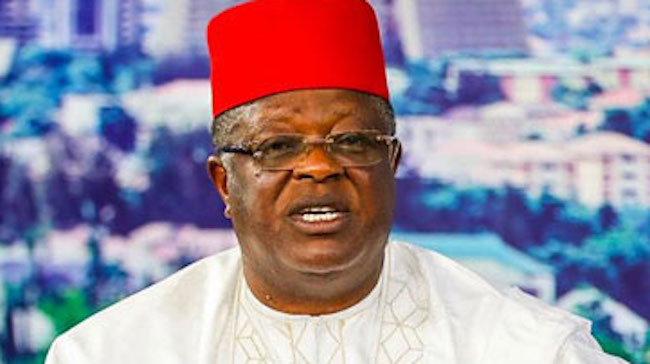News
Nigerian govt to introduce toll collection on Lagos-Ibadan, Second Niger Bridge, other highways

The Federal Government will introduce toll collection on all major roads in the country at the end of the ongoing rehabilitation works.
The Minister of Works, Dave Umahi, stated this at an Inter-Ministerial Press Briefing put together to mark Nigeria’s 64th independence anniversary on Thursday in Abuja.
He listed some of the roads as Lagos-Ibadan Expressway, Abuja-Kano Road, Makurdi-9th Mile, and Second Niger Bridge, among others.
The minister revealed that the government would kick-start the toll collection at the Keffi-Makurdi Road.
READ ALSO: You’ll be provoking the South-East if you reintroduce toll gates, Igbo group tells FG
He said the federal government had approached the private sector players to bring in funds, construct the roads, and work with the Infrastructure Concession Regulatory Commission and the ministry to collect tolls on the highways.
Umahi said: “We have the Lagos-Ibadan Expressway. We are completing it and we are tolling it. We are working on Makurdi to 9th Mile in Enugu State. We are also working on the Abuja to Lagos road. These roads are going to be tolled. But we are not just tolling them, we are bringing confidence in the use of these roads.
“If people can travel at night because we are bringing security, where the response time will be 10 minutes on the entire corridor where you have solar light permanently there and then reduce travel time. Through the tolling, the roads are maintained, then, there will be confidence because Nigerians will pay if the roads are good.”
Join the conversation
Support Ripples Nigeria, hold up solutions journalism
Balanced, fearless journalism driven by data comes at huge financial costs.
As a media platform, we hold leadership accountable and will not trade the right to press freedom and free speech for a piece of cake.
If you like what we do, and are ready to uphold solutions journalism, kindly donate to the Ripples Nigeria cause.
Your support would help to ensure that citizens and institutions continue to have free access to credible and reliable information for societal development.




























